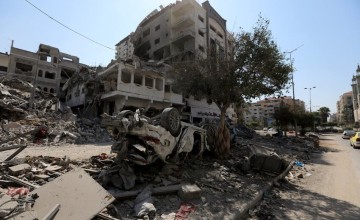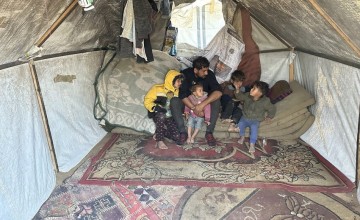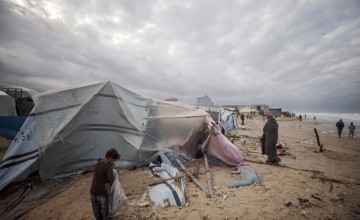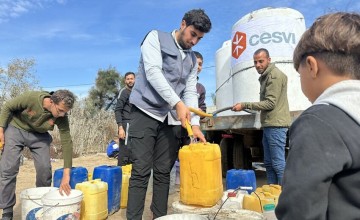
Knowledge Hub
Gaza: 19 months on

After 19 months of conflict, and with the entire population of Gaza at risk of famine, the humanitarian situation is deteriorating every day.
While some supplies of aid are now being allowed through after an 11-week blockade, the UN has said it is “nowhere near enough to meet the vast needs in Gaza”.
People are on the brink, struggling to find food, unable to access clean water and living without safe shelter.
Nearly half a million people in Gaza - one in every five - now face starvation, according to the most recent assessment from the Integrated Food Security Phase Classification (IPC). Almost the entire population of Gaza of two million people are experiencing high levels of acute food insecurity.

Up until this week, humanitarian aid and commercial supplies had been prevented from entering Gaza for more than 60 days, putting millions of lives at risk and creating insufferable living conditions. The blockade meant that humanitarian supplies, including food, fuel, medical aid and vaccines for children, have been rapidly depleted. On top of that, the inadequate supply of safe drinking water remains a critical issue.
Food scarcity has resulted in soaring prices in Gaza — a 25kg sack of flour now costs between £175 and £385 — an increase of up to 3,000% in just three months. Malnutrition cases are rising fast. Tens of thousands of children and mothers urgently need treatment for acute malnutrition.
This is not just a crisis of numbers – it is a crisis of human suffering. Families are going without food. Children are going to sleep hungry. Parents are doing everything they can to care for their loved ones, but without access to food, clean water, or essential healthcare, the situation is becoming unbearable.

Our partner in Gaza, CESVI, has been working tirelessly to support people in these unimaginably difficult situations to help meet basic needs. During the temporary ceasefire earlier in the year, we were able to replenish much-needed supplies which have helped to sustain operations during the aid blockade.
We trucked in more than 6,000 cubic metres of water to 18 temporary and makeshift sites in Deir El Balah, Middle Gaza Governorate, Khan Younis and Gaza City where 31,000 people live, and have distributed hygiene kits to almost 20,000 people.
We have also been providing supplies of emergency therapeutic and supplementary food to 1,200 children under five and pregnant and breastfeeding mothers, some of whom are severely malnourished.
The job of local staff members will only become harder in the days and weeks ahead if adequate supplies of aid are not allowed to enter Gaza immediately.
Donations to the DEC Middle East Humanitarian Appeal have helped ensure that we, other DEC charities and local partners can keep doing everything we can to support the people of Gaza living on the edge.

Other ways to help
Donate now
Give a one-off, or a monthly, donation today.
Join an event
From mountain trekking to marathon running, join us for one of our many exciting outdoor events!
Buy a gift
With an extensive range of alternative gifts, we have something to suit everybody.
Leave a gift in your will
Leave the world a better place with a life-changing legacy.
Become a corporate supporter
We partner with a range of organisations that share our passion and the results have been fantastic.
Create your own fundraising event
Raise money for Concern by organising your own charity fundraising event.


